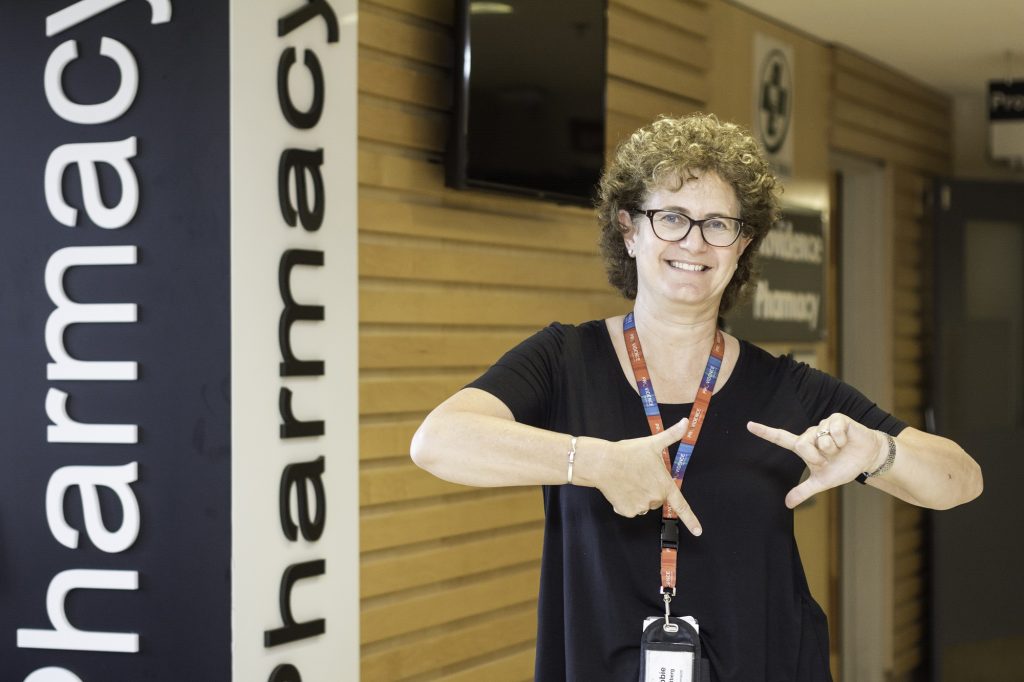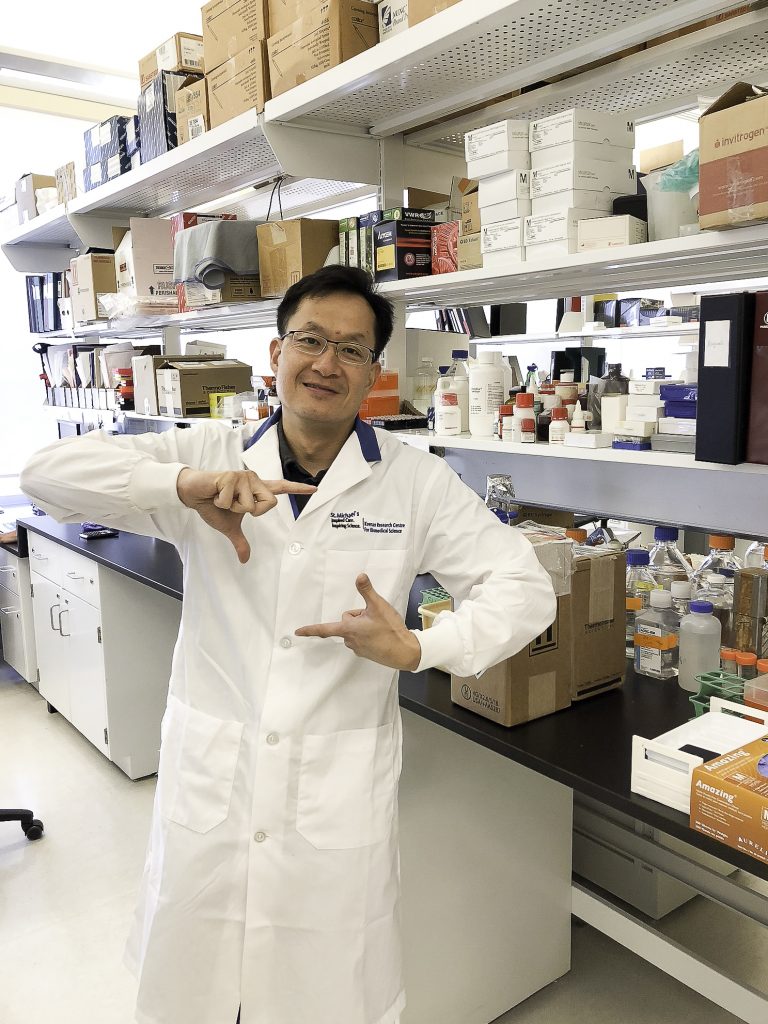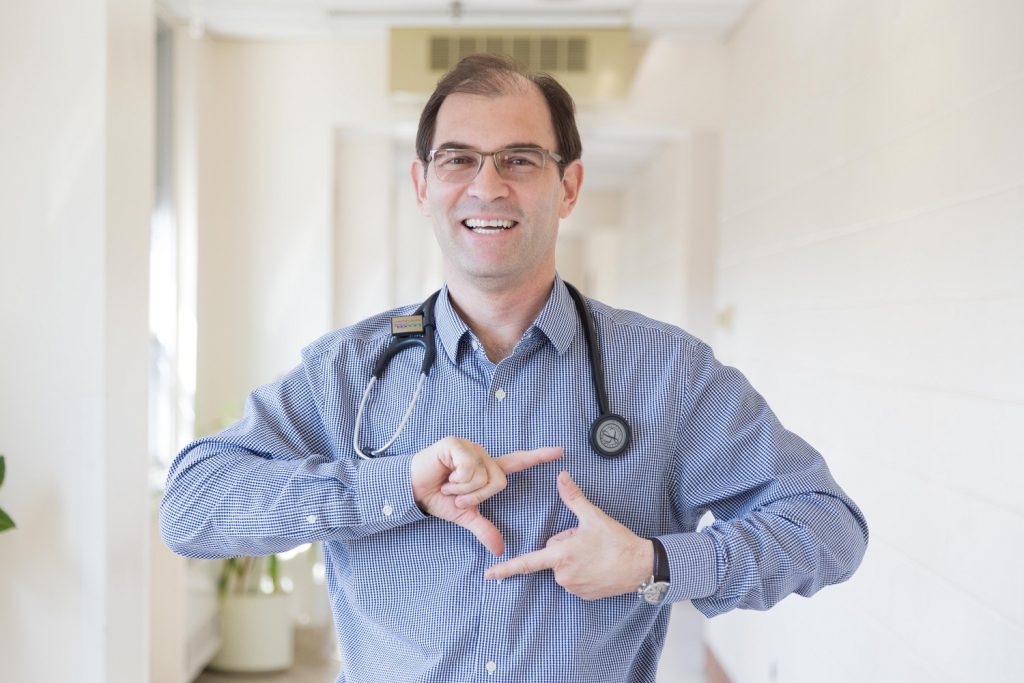Celebrating World Heart Day

September 29 is World Heart Day
World Heart Day takes place on the 29th of September every year and is the World Heart Federation‘s and the world’s biggest platform for raising awareness about cardiovascular disease, including heart disease and stroke. Whether it be through prevention or treatment, we recognize the importance of heart health and we acknowledge the many professionals who play an active role in ensuring that our patients, residents and clients not only receive the best possible care, but feel empowered to enact self-care.
We take the opportunity this World Heart Day to highlight how some of the experts across our network are making a difference for our patients, residents and community, and also for their colleagues and teams.
Debbie Goldberg, Pharmacist, Smoking Cessation Officer, Providence Healthcare

How does the work you do help to improve heart health?
At Providence we try to establish relationships with patients who smoke. During their rehabilitation we offer detailed counseling and support in smoking cessation. We offer a wide variety of nicotine replacement products and customize their support programs. Successfully decreasing their level of smoking supports cardiac health benefits for the rest of their life.
What can you do right now to look after your heart?
Try to work towards increasing your level of physical activity daily and give serous consideration to supporting a family member, friend or yourself in attempting to stop smoking. It’s not always easy, but know that there are resources and professionals out there to help guide you.
Adrian Quan, Research Manager, Cardiac Surgery Research, CardioLink Platform, Keenan Research Centre for Biomedical Science, St. Michael’s Hospital

How does the work you do help to improve heart health?It’s gratifying to work with the CardioLink Research Clinical Trial Platform, which addresses practical questions in the areas of cardiovascular surgery, metabolic disease, and perioperative care. Since its inception, the program’s mandate has been to carry out clinical trials with a goal of bringing about changes in practice that will have immediate impact, reducing morbidity in patients who live with cardiovascular disease. It is an exciting time for CardioLink as we start to see our first clinical trials come to completion and as we embark on some of our largest and most ambitious trials yet.
What can you do right now to look after your heart?
It’s no secret that the key to a healthy heart is exercise. Where the challenge lies is how to implement this into our daily lives. We all have busy lives, with demands on every minute of every day. It’s easy to let exercise take a back seat to our everyday demands – there is always something that needs to be done. Like all the important things in our lives, exercise needs to be scheduled and prioritized – your heart’s health depends on it.
Mark A. Fisher MD FRCPC, Cardiologist, St. Joseph’s Health Centre

How does the work you do help to improve heart health?
As a community cardiologist I have the opportunity to help patients at various stages of heart disease – from those who feel entirely well, but have risk factors that should be addressed (such as smoking, diabetes mellitus, hypertension, etc.) to those who have just experienced a heart attack and have had coronary intervention. This also includes those with advanced congestive heart failure in our Heart Function Clinic at St. Joseph’s. Fortunately, we have many effective treatment options available to our patients, including medications, coronary interventions, devices such as pacemakers and Implantable Cardioverter Defibrillators (ICDs) and specialized multidisciplinary clinics with advanced practice nurses and allied healthcare professionals.
What can you do right now to look after your heart?
Ultimately, an “ounce of prevention is worth a pound of cure” still rings true. Don’t just talk about it or think about it. Start doing it! Become more active, start eating more healthy and be aware of your blood pressure. Some of these things can be difficult to implement so be aware that physicians, nurses and other health care professionals can help you achieve these goals – don’t be afraid to seek help. Finally, life is short – make sure you take time to look after yourself – decrease stress by doing something you love and taking time to enjoy life.
